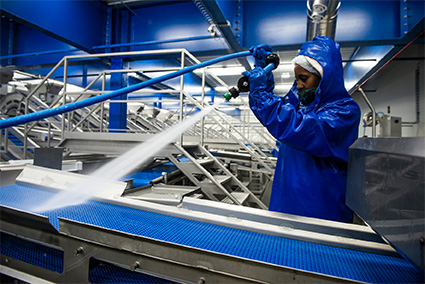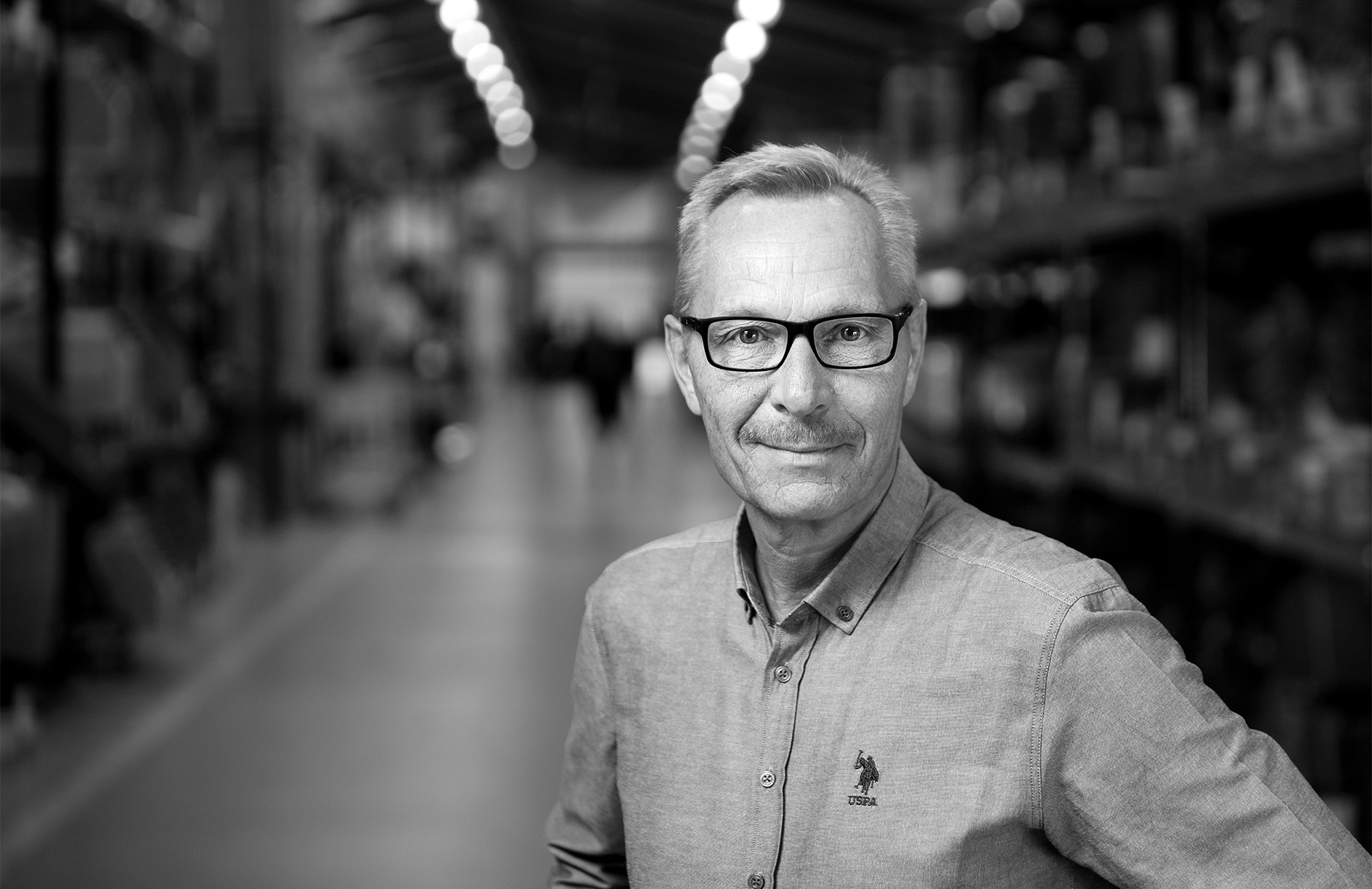AxFlow´s offering getting broader
In July 2021, AxFlow Holding became a majority shareholder in Danish company System Cleaners. The company’s offering complements AxFlow’s core offering of fluid-handling systems for the food and beverage industry. For CEO Peter Freiesleben, the deal was exactly what System Cleaners had been looking for – strength to grow and stability for the future.
“AxFlow is an industry investor, one that will keep the company for the next generation,” he says. “From the first meeting it was clear it was a very good fit. Working within an international organisation also gives our company exposure to new markets and global brands.”
Pioneer in cleaning of open-plant machinery
Established in Denmark in 1990, System Cleaners is a pioneer in low-pressure, high-flow cleaning of open-plant machinery. It has installed units in more than 100 countries and works with the biggest names in the food and beverage industry.
For AxFlow, the acquisition enables it to offer the industry a complete portfolio of products and services. For System Cleaners, working within an international organisation gives it exposure to new markets and global brands. More than a fifth of AxFlow’s revenue already comes from the food and beverage industry, which, says Peter, is a huge opportunity.
“AxFlow has the eyes and ears,” he says. “They visit these food and beverage plants all the time, so they can see how they clean and what cleaning equipment they have. It’s another strength that we can use to grow.”
An efficient and sustainable method
The low pressure, high-flow cleaning method pioneered by System Cleaners is more efficient than higher-pressure options. It takes less time and the reduction in time has several benefits – it uses less water, making it more sustainable, and it enables manufacturers to run their machines for longer. One brewery was able to create an extra 50,000 cans a day with the time it once spent having its machinery cleaned, according to Peter.
“It can be very profitable for companies that adopt these techniques,” he says. “Our method is the most effective at removing residues. It minimises cross-contamination, and the return on investment on a high-flow insta llation solution is six or seven months. That’s what it’s all about.”
llation solution is six or seven months. That’s what it’s all about.”
To ready itself for growth, the company has been undergoing a process of digitalisation. The process extends to use of virtual reality and 3D drawings – enabling clients to see renderings of their factories with the equipment. The digitalisation has been a game changer, particularly when displaying complex systems, lowering travel carbon footprint and helping nations that suffer water scarcity or have challenges with food safety.
“We divide the cleaning process into parameters, because it’s very complex, and in some countries water is like oil or gold – it must be used carefully,” says Peter. Virtual reality enables us to show clients how we manage to clean the processing equipment the way we do, so they can feel confident that we’re able to do it.”